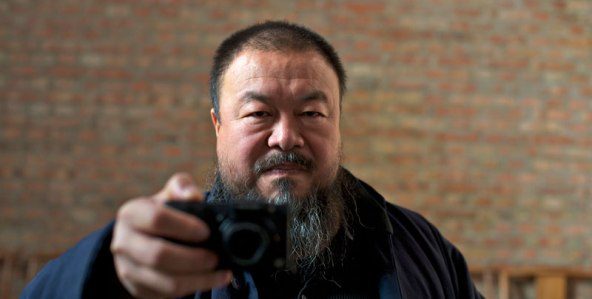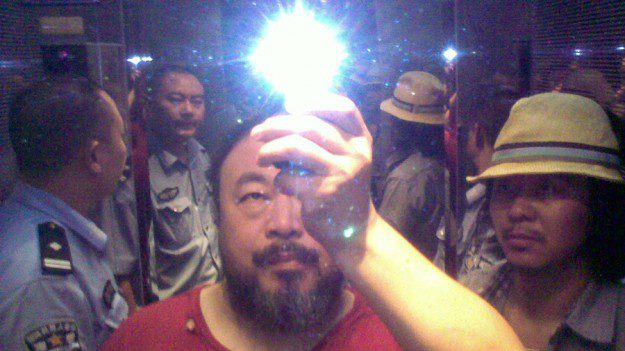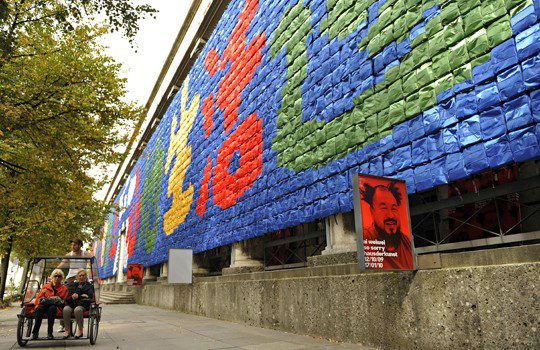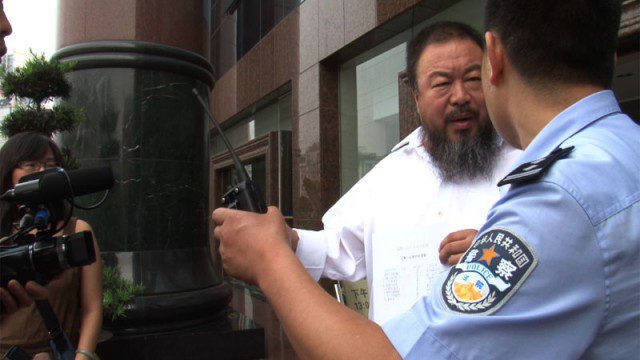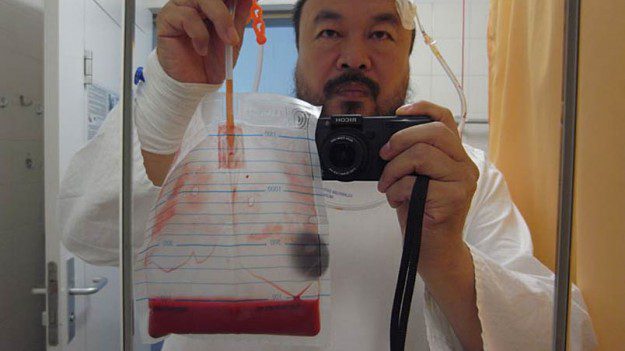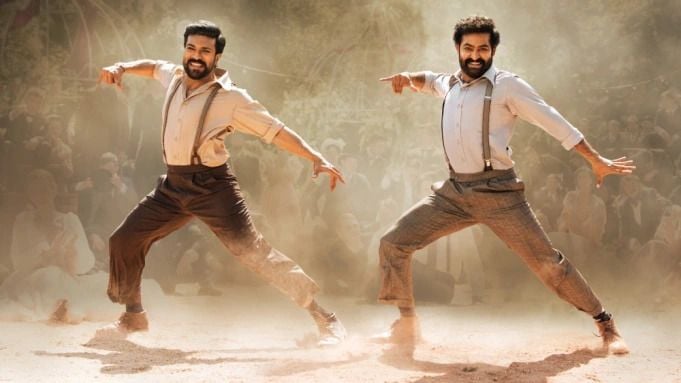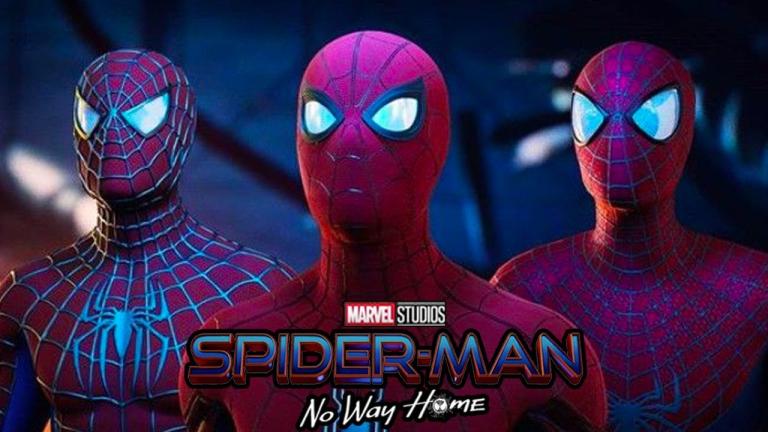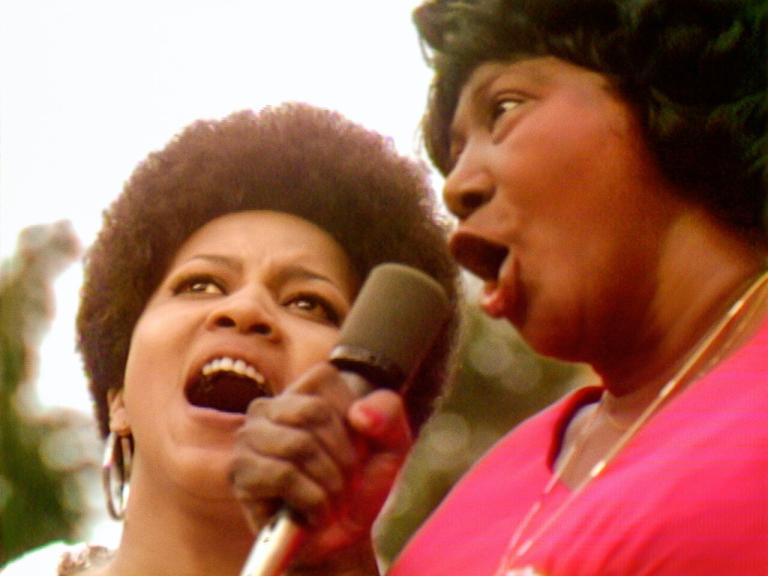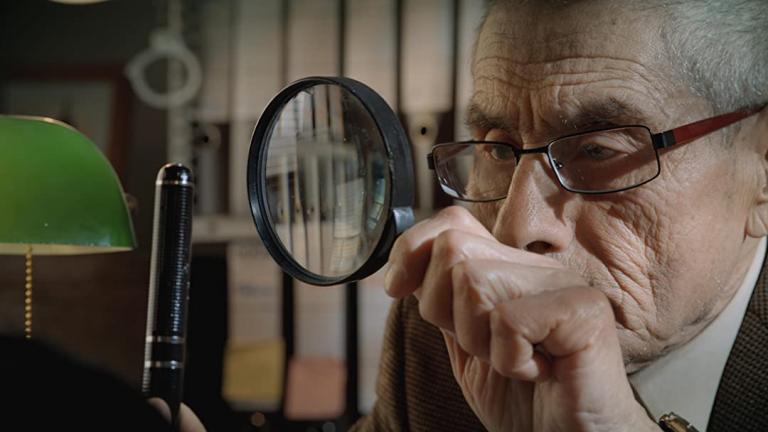Looking for an alternative to the ubiquitous Olympics coverage? The riveting documentary, Ai Weiwei: Never Sorry, slipped quietly into theaters as the 2012 Summer Olympics opened. How appropriate for one of the most fervent advocates of democracy in China to present an alternative view of the People’s Republic. Ai Weiwei: Never Sorry is a celebration of a subversive artist and a bracing call to creative resistance. Olympic viewers who care about equality and human rights are urged to engage to embrace this brilliant counter-programming. This sly ‘Sundance Selects’ release opens in Los Angeles this weekend.
Four years ago, all eyes were focused upon the Summer Olympics in Beijing. Viewers marveled at the remarkable Birds Nest Stadium and Water Cube. The opening ceremony of the 2012 London Olympics suffered from comparisons to the spectacle mounted in Beijing. Beyond the carefully choreographed routines, Chinese dissident Ai Weiwei challenged sports fans to see through the façade. As a contributor to the Bird’s Nest design, Ai hoped that the Olympics might be a liberating event. But as the games arrived, Ai noted how many migrants were displaced by the Beijing Olympics; shoved aside for the sake of the show. He ended up literally flipping the bird at the Bird’s Nest (and the Communist Party).
Documentarian Alison Klayman has woven together a remarkable peek inside Ai’s method and madness. Ai describes himself as more chess player than artist, studying his opponent, waiting to respond to the Chinese government’s next move. He downplays the significance of his resistance, insisting, “Life is much more interesting when you make a little bit of effort.” Klayman’s cameras follow Ai to his exhibitions in Munich and London. His artistic focus shifts from the past to the present, growing in political relevance. When the government underreported the deaths from a devastating 2008 earthquake in Sichuan province, Ai decided to document and remember those who perished. Shoddy ‘tofu’ architecture resulted in the collapse of so many schools and the death of over 5,000 students. Gathering the names of the deceased becomes a living art project for Ai and his assistants. The sight of children’s backpacks covering the outside of his Munich show, “So Sorry,” is haunting.
Such bold statements are bound to attract the attention (and ire) of the Chinese government. When Ai’s blog is shut down, he takes his case to Twitter as “aiww”. His efforts to testify on behalf of fellow earthquake activist Tan Zuoren are blocked. Ai gets beaten and detained by police in Chengdu. Tan is sentenced to five years in jail. And yet, Ai persists, filing lawsuits, making official complaints because, “If you don’t act, the danger becomes stronger.” Dining in public, inviting his followers on Twitter, becomes Ai’s street art. His playful persona echoes the confrontational style of Michael Moore, but for Ai, the cameras provide much needed protection. While his techniques echo the America counterculture’s flouting of authority, Ai’s cause is a rare opportunity for Americans on the left and right to agree.
What drives Ai? Director Klayman digs into his roots, particularly his father, poet Ai Qing, who was assigned to years of “reeducation” by the communists, starting in 1957. Ai Weiwei saw government abuses from a very young age. A decade in New York as an aspiring artist gave Ai a taste of democracy–and punk rock. He embraces the role of hooligan, extending an “f. u.” attitude toward the Chinese political system. His smart phone becomes a tool for active resistance, documenting atrocities, posting photos immediately. His mother rightly worries, “They’ll bully you.”
In the final third of this compelling story, we learn what measures the Chinese government may adopt to suppress voices of dissent. Writer Liu Xiadobo is sentenced to 11 years in prison for inciting subversion. He wins the Nobel Prize, but his voice is never heard in China. Even this Spring, when the plight of the blind, dissident lawyer Chen Guangcheng made headlines across the globe, the Chinese press was reporting on their latest trade agreements with Eastern Europe. Activists like Liu, Chen, and Ai are nearly invisible to the average Chinese citizen (thus the importance of spreading the word about this documentary and movement).
Will Ai be silenced for throwing stones at a dictatorship? The true measure of his art (and impact) comes from his absence. How many will take up his cause, joining in his alternative parties? The seeds planted on Twitter give him reasons to be optimistic. Ai declares, “Freedom is a pretty strange thing. Once you’ve experienced it, it remains in your heart and no one can take it away. Then, as an individual, you can be more powerful than a whole country.” We are all challenged to join Ai’s revolutionary ways, “Never retreat, retweet!” Check out the trailer here:

